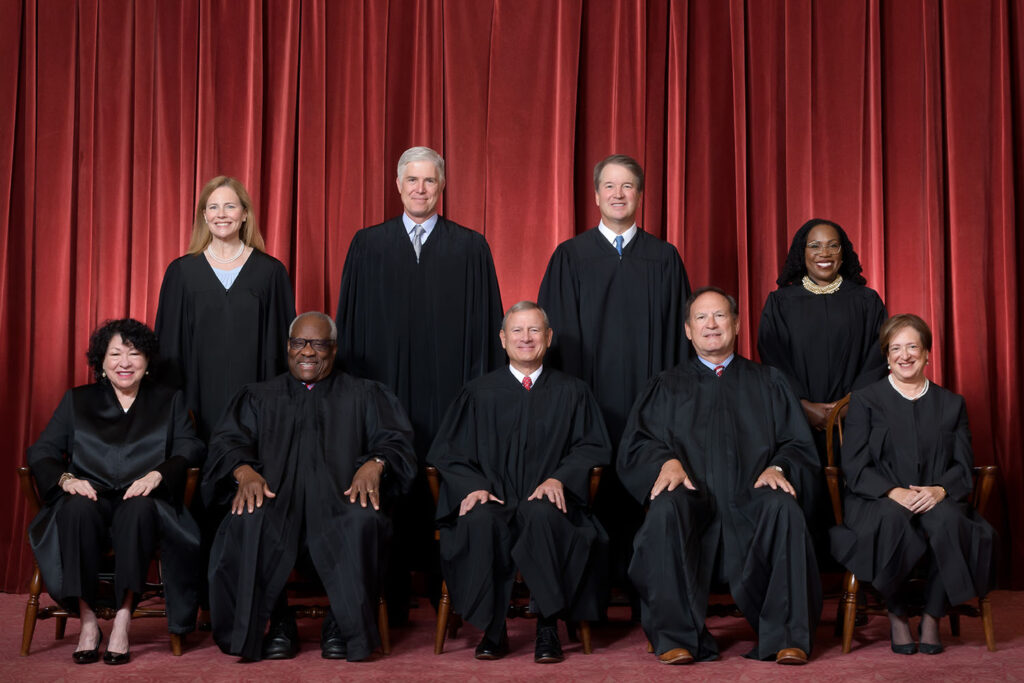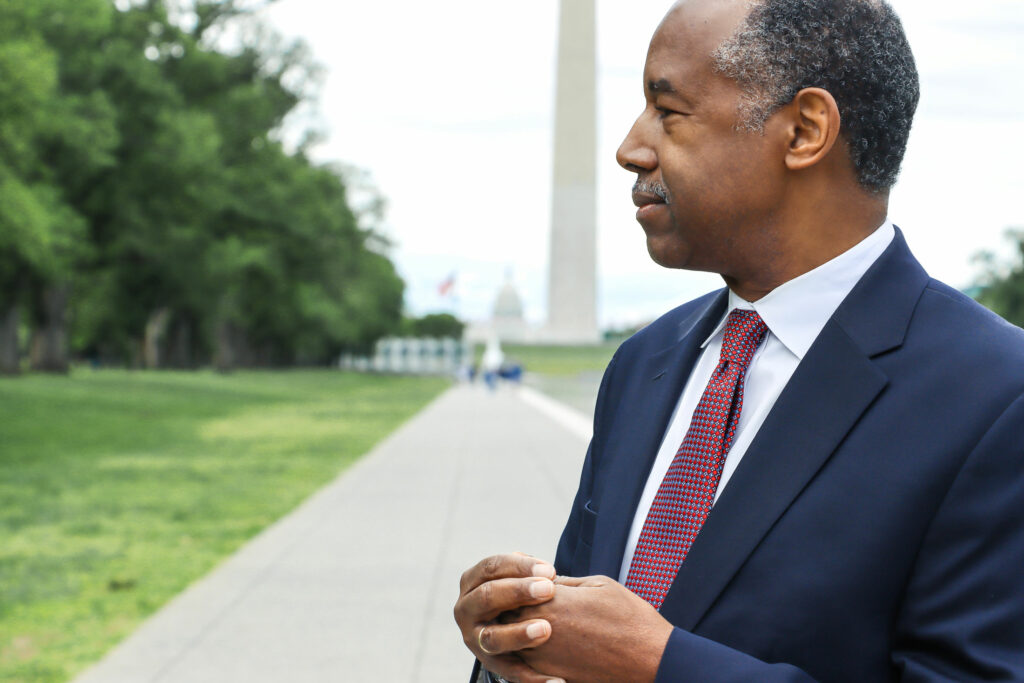
Supreme Court Watch
Argued January 17, 2024
Question Presented
Should the Supreme Court overrule its previous holding in Chevron v. Natural Resources Defense Council, which requires deference to agency interpretation in the event of statutory ambiguity? If not, should the Supreme Court clarify that statutory silence regarding controversial powers narrowly granted within the statute does not require deference to agency interpretation?Statement of Facts and Procedural History
A group of commercial fishermen sued the National Marine Fisheries Service after it promulgated a rule that requires the industry to fund an at-sea oversight and monitoring program. Under the program, fishing boats not only have to make room for a federal oversight commissioner on their watercraft, but they must also fund the monitor’s salary of $710 per day. The fishermen argued that the Magnuson-Stevens Fishery Conservation and Management Act of 1976 did not authorize such a regulatory scheme and that the service also did not follow proper rulemaking procedures in promulgating the rule.The district court granted summary judgment for the government based on the precedent set in Chevron v. Natural Resources Defense Council. The U.S. Court of Appeals for the D.C. Circuit affirmed the district court’s opinion based on that same precedent, and the Supreme Court granted cert on May 1, 2023. This brief will focus exclusively on the constitutional questions surrounding Chevron deference.
Key Precedent
- Chevron v. Natural Resources Defense Council, 467 US 837 (1984)
- In which the Supreme Court held that when a court reviews an agency’s interpretation of an applicable statute, in the event of Congressional ambiguity or silence in statutory language, the Court should defer to the agency’s interpretation of that statute rather than its own interpretation.
Summary of Argument
Arguing on behalf of Commerce Secretary Gina Raimondo, Solicitor General Elizabeth Prelogar argued that the court should not overrule Chevron. First, Raimondo argued that Chevron has established itself as a “bedrock principle” of administrative law, which is designed as a framework to guide judicial review of an agency’s statutory interpretation—an interpretive authority that is presumed by Congress. She pointed out that before the court even reaches the agency deference stage, it first must exhaust its “traditional tools of statutory construction,” and Chevron only comes into play when these questions remain unanswered. As such, Chevron gives appropriate weight to the expertise of agency experts, promotes uniformity in law, and adds greater political accountability for regulatory agencies.Raimondo also argued that the principle of stare decisis weighed heavily in favor of preserving Chevron deference because it has “been a cornerstone of administrative law.” As such, under the doctrine of stare decisis, the Court should generally defer to its previous holding. She also argued that Congress could alter or eliminate Chevron at any time, but the fact that it has declined to do so suggests that stare decisis should be a particularly weighted consideration here. Finally, she argued that Chevron does not run afoul of the separation of powers principle because Congress has the authority to delegate such authority to agencies, and the court’s deference to agency interpretation amounts to an exercise of judicial power itself.
Paul Clement argued on behalf of the petitioners in response. First, he argued that Chevron has little stare decisis effect because it is not a case’s holding or an outcome, but rather a method of statutory interpretation. Even if stare decisis did apply, Clement argued, Chevron is “egregiously wrong,” and thus stare decisis concerns should be overridden by constitutional concerns. Clement emphasized his concerns that Chevron violates the separation of powers by vesting both legislative and judicial powers in unaccountable federal agencies and argued that Chevron deference violates due process by slanting the trial in favor of the agency in a systematically biased way. Clement highlighted some real-world consequences of Chevron and closed by arguing that if the Court does not overrule Chevron, it should, at the very least, make clear that statutory silence does not require Chevron.
The American Cornerstone Institute (“ACI”) submitted an amicus brief supporting Loper Bright and called upon the justices to overturn Chevron. In this brief, ACI drew upon the Founders’ understanding of the proper role of Congress and the executive regarding the separation of powers principle in our Constitution. ACI argued that Congress, rather than unelected and unaccountable administrative bureaucrats, is the proper entity to give meaning to statutory terms. Drawing upon the Framers’ warnings against consolidation of power and unaccountable lawmaking, ACI pointed to examples of COVID-19-era administrative rules that unduly infringed upon American liberty. For example, in 2021, the Department of Labor attempted to enact an expansive private sector vaccine and testing mandate under the Occupational Safety and Health Act of 1970. ACI also argued that allowing Chevron to stand will further infringe upon the separation of powers principle by enabling agencies to overstep Congress’ authority to create legislation and the judiciary’s authority to decide cases and controversies.
Likely Holding
The Supreme Court’s originalist majority appears likely to overturn Chevron and return legal judgment to the judicial branch for many of the reasons presented in Loper Bright’s argument above. At oral argument, Justice Kavanaugh brought up the point that Chevron introduces an inevitable instability into administrative law; usually, every four or every eight years, the agency experts and key personnel are replaced by a change in the presidential administration. Under the current understanding of Chevron, this throws the interpretation of law into disarray, requiring courts to give deference to agency experts who could say one thing in one year and another in the next. Justice Gorsuch pointed out that he was less concerned with the big business’ abilities to navigate Chevron—it was the little guys, like immigrants, veterans, and social security claimants, who were most often victimized by agency deference. These are the people who lack the resources to fight back. Justice Alito mentioned that the question of whether an ambiguity exists is itself ambiguous—and courts are faced with such questions of ambiguity all the time. When faced with such questions, courts do not “give up” on trying to determine the meaning of the ambiguous language and turn to an external organization to provide clarity, so there is no reason that should change when it comes to agency law. Justice Roberts also mentioned that overturning Chevron might have minimal effects, as the Court hasn’t relied on Chevron in years.The Court’s liberal justices appeared much more amenable to preserving Chevron. Justice Kagan argued that the unique expertise of federal agencies puts them in the best position to resolve questions of ambiguity in federal statutes. She claimed that judges, by nature, do not have subject matter expertise in these areas, so deference to agency experts can result in a more rational interpretation of the statute. Justice Sotomayor picked up on a similar argument and asked that if the court needs a tiebreaker on an ambiguous question, why shouldn’t they defer to the agency to fill that gap? In her view, judges routinely disagree on the meaning of law anyway, and often there is no clear answer—so agency subject matter experts are well-positioned to inform the court of these questions and ought to receive deference. Justice Jackson also pointed out that in many cases, Congress allows agencies to fill these gaps in ambiguous language. If Chevron is discarded, now Courts will have to fill that role and make more substantive policy decisions, a form of judicial activism.
In brief, it appears likely that the Court will overturn Chevron. Under our system of constitutional republicanism, delegating legislative and judicial authority to unelected bureaucrats runs afoul of the separation of powers principle. The Court would do well to assert our Constitution’s separation of powers principle, reject Chevron, restore the legislative role to the elected officials in Congress, and return the judicial role to the courts.
